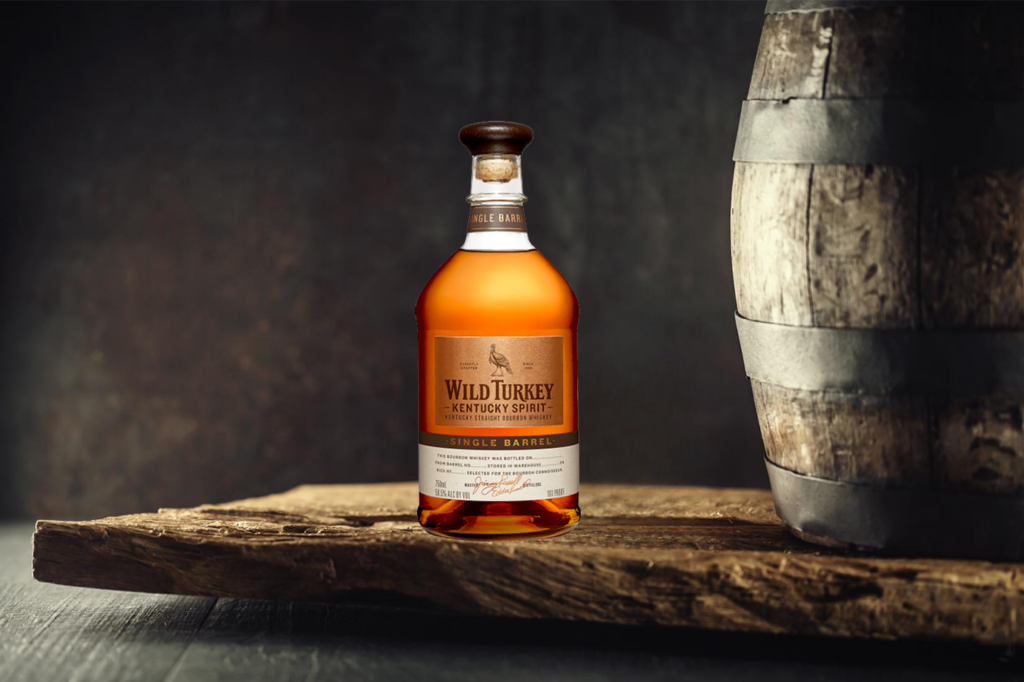
Date published
July 1, 2023
Wild Turkey is one of the most established distilleries in Kentucky. The distillery opened in 1869 on Wild Turkey Hill in Lawrenceburg, Kentucky. The name of the distillery didn’t come about until 1940 when an executive at the distillery shared the bourbon with some friends on an annual hunting trip. Of course, they were hunting wild turkeys.
Enter Jimmy Russell – a living legend and Master Distiller – in 1954. Since Jimmy Russell joined Wild Turkey, he has become known as the ‘Buddha of Bourbon’, but he calls himself ‘Plain old Jimmy from Kentucky.” His list of accomplishments is incredible. He is the longest-tenured, active Master Distiller on the planet with 60 years under his belt. He created the Rare Breed, Kentucky Spirit, and co-created the Russell’s Reserve brands under the Wild Turkey umbrella. Then in 1981, Jimmy’s son Eddie joined the company and worked up to the title of Master Distiller, making Jimmy and Eddie the only active father-and-son team of Master Distillers in the world.
Kentucky Spirit was one of the first single-barrel Bourbons released to the market. It is bottled consistently at its signature 101-proof or 50.5% ABV. This particular bottling is super unique for Calgary Co-op because we specifically selected this bottle to be sold at our Wine Spirits Beer locations for its exceptional quality. This whiskey is full, with a complexly layered nose and palate, with aromas and flavours of vanilla, almond, caramel, leather, and honey. For being higher than normal ABV, the palate is beautifully smooth and elegant, with an intense flavour and a very long finish.
Shop NowWhen it comes to building a collection of whisky at home, there is one grave mistake that should be avoided at all costs for those who are new to the hobby, do NOT EVER cellar your whiskies laying on their side like a bottle of wine!!! The reason for this is simple, the very high level of alcohol in the whisky will cause the cork to deteriorate incredibly quickly if left on its side. The cork is the first line of defense in keeping the whisky stored properly. The last thing you want to do is potentially ruin the cork before you even open the bottle. Another great tip is that when you do open that bottle, especially if you plan to keep it for a while, tip the spirit up to remoisten the cork 2-3 times per year. This will help keep the spirit from oxidizing by creating a better seal against the neck of the bottle and also helps to avoid the cork drying out and potentially crumbling when you revisit a whisky you haven’t in a while. Lastly, try your best not to twist the cork around while pulling it from the bottle. As it will greatly increase the chances of a cork ripping or crumbling if a bottle has been open for a while.
You often see the term ‘Proof’ attached to spirits, and very frequently you’ll see it on a bottle of Bourbon whiskey. But what exactly does ‘proof’ mean? At the base level, it is a measurement of the alcohol inside a bottle of spirits. In England, the government adjusted the tax rate on each barrel based on the potency of alcohol. In the 18th century, the proof was determined when sailors unloading cargo ships would mix a bit of whisky with a pinch of gunpowder and drop a match onto the mixture. If it ignited, the sailors knew that at least half the content was alcohol. The term ‘proof’ is really only used in the United States currently, with the rest of the world labeling with the common ABV, or Alcohol by Volume. Bourbon cannot be bottled below 80 proof, or 40% ABV, which is the legal minimum required. Most Bourbon will range between 80-100 proofs.
 Recommended by Crowfoot Sommelier, Kevin Schorath
Recommended by Crowfoot Sommelier, Kevin Schorath